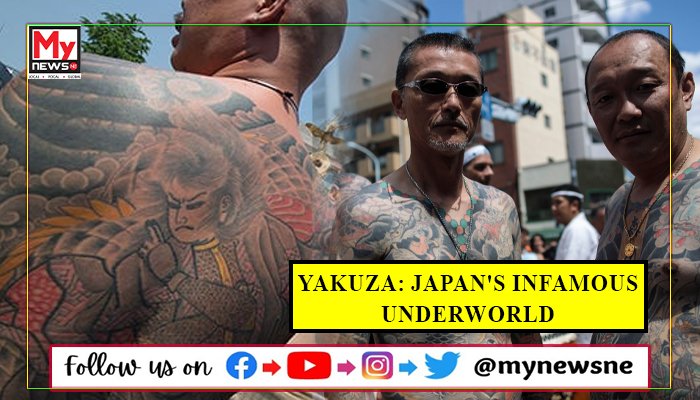Unveiling the Enigmatic World of the Yakuza: A Closer Look at Japan’s Notorious Crime Syndicate
Introduction
The Yakuza, Japan’s infamous organized crime syndicate, has long captured the imagination of the public, both in Japan and around the world. With a history dating back centuries, the Yakuza’s influence extends beyond criminal activities, permeating various aspects of Japanese society. In this article, we delve into the complex and enigmatic world of the Yakuza, exploring their origins, structure, activities, and the ongoing efforts to curb their influence.
Origins and History

The roots of the Yakuza can be traced back to the Edo period (1603-1868), where they emerged as street merchants and gamblers. Over time, these groups evolved into organized crime syndicates with a strict hierarchical structure, incorporating elements of traditional Japanese culture and honor codes.
Structure
The Yakuza operates as a highly organized and hierarchical criminal network. The structure is akin to a family, with each member having a designated role and responsibilities. The head of the Yakuza family, known as the oyabun, holds a position of great influence and is respected as the patriarch. Loyalty, respect, and a code of conduct known as “ninkyo” are deeply ingrained within the organization.
Activities
The Yakuza is involved in a wide range of criminal activities, including extortion, racketeering, smuggling, drug trafficking, and illegal gambling. They have also been linked to legitimate businesses, blurring the lines between organized crime and mainstream society. However, the Yakuza’s involvement in relief efforts after natural disasters has led to a complex perception of their role in Japanese society.

Government Crackdowns
Over the years, the Japanese government has implemented various measures to curb the influence of the Yakuza. These include anti-gang laws, asset freezes, and increased law enforcement efforts. However, the Yakuza’s ability to adapt and operate discreetly has posed challenges for authorities.
Changing Dynamics
In recent years, the Yakuza has faced internal and external pressures that have led to shifts in their traditional practices. Increased law enforcement scrutiny, changing societal attitudes, and economic challenges have forced some Yakuza groups to reassess their activities and adopt a lower profile.
International Connections
The Yakuza is not confined to Japan; they have established connections with organized crime groups worldwide. These international ties have raised concerns about the global reach and influence of the Yakuza beyond Japan’s borders.
Conclusion
The Yakuza remains a complex and ever-evolving presence in Japanese society. While law enforcement efforts continue to target their criminal activities, the Yakuza’s historical roots, cultural significance, and ability to adapt make them a persistent force. Understanding the dynamics of the Yakuza is essential for grasping the intricate relationship between organized crime and Japanese society.

